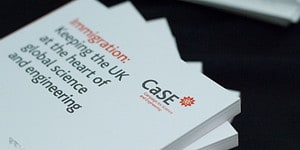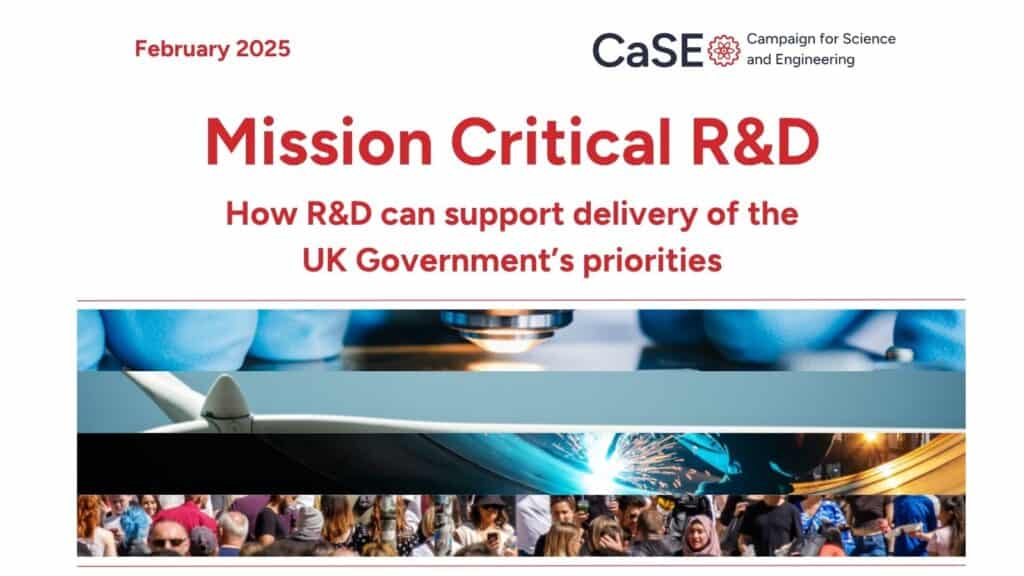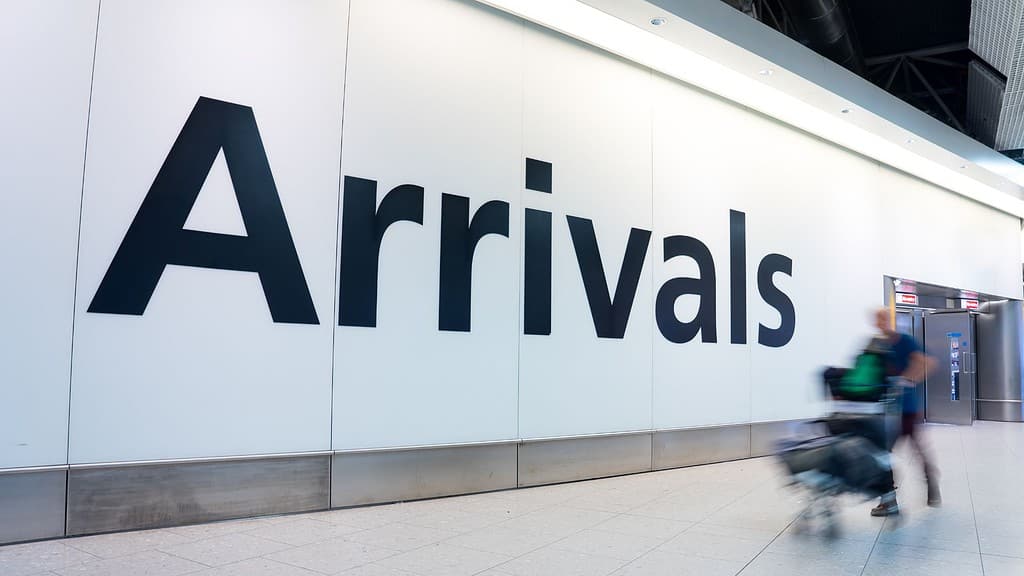CaSE has launched a new report on immigration and calls on the Government to improve its immigration policies to maintain the UK’s position as a leading global hub of science and engineering
CaSE launches new immigration report
21 Jan 2016
CaSE has called on the Government to improve its immigration policies to maintain the UK’s position as a leading global hub of science and engineering.
In a report, launched today in the House of Lords, CaSE said that the Government’s anti-immigration rhetoric and immigration policies are putting the UK’s future economic and scientific success at risk. The report concludes that complex rules, unclear guidance, and bureaucracy are making immigration unnecessarily difficult for these economically-valuable workers.
The report was launched at a breakfast roundtable discussion held jointly with the All-Party Parliamentary Group on Global Health. The report was sponsored by Digital Science – a leading technology incubator focused on jump-starting innovation in the research community.
Main Headlines
The report finds that immigrant scientists and engineers bring new ways of thinking to universities and businesses, help build international collaborations, and open up new global markets through their contacts and language skills.
Despite these benefits, the report identifies rules and policies that are stopping talented scientists and engineers from coming to the UK to conduct vital research and contribute to our high-tech economy.
These include rules that prevent researchers from working in the UK for more than seven years if their research involves 180 days travel overseas each year.
Moreover, CaSE has collected evidence showing that 66 engineers were unable to get a visa to work in the UK because of a Government-imposed cap. With only 30 higher-level engineering apprentices finishing their training in 2013/14, the sector cannot afford to be starved of talented engineers.
CaSE’s report concludes that complex rules, unclear guidance, and bureaucracy are making immigration unnecessarily difficult for these economically-valuable workers.
The report demonstrates the contribution of immigrant scientists and engineers to the UK’s scientific and economic strength, and its culture.
- 35% of the public would like to see higher levels of immigration of scientists and researchers, making them the most-welcomed profession
- 40% of all British Nobel Prize winners were born overseas
- A quarter (26%) of academic staff in our universities are non-UK nationals
- More than 13,000 scientists and engineers came from outside the European Union to work in the UK in 2014/15.
- 72% of UK-based researchers spent time at non-UK institutions between 1996 and 2012
Report’s Recommendations
The report makes 12 positive recommendations to the Government for actions it could take to demonstrate its commitment to strengthening the UK’s position as a leading global hub of science and engineering.
- Actively promote the UK as a place to learn, earn, and contribute
- Support international researchers to maintain links with their home countries to promote international development
- Protect the free movement of people in Europe
- Harmonise with EU legislation to support researcher mobility
- Fast-track peer-reviewed applicants through Tier 1 (Exceptional Talent)
- Abolish the Tier 2 (General) cap
- Permit research activity overseas in Indefinite Leave to Remain rules
- Create a new Tier 5 (Temporary Worker – Science, Research, and Academia) visa
- Allow trusted Sponsors to certify visitor visas for low-risk researchers
- Extend the international graduate job search period
- Improve online visa information to make it more user-friendly
- Reform the Resident Labour Market Test and increase the frequency of Certificate of Sponsorship allocations
The Director of CaSE, Sarah Main, said:
“Immigrants have helped make the UK a world-leader in science and engineering. From the structure of DNA to the design of the Mini, we have benefitted from great ideas brought by talented people from abroad.
The Government wants to make the UK the best place in the world for business and science. This report shows that getting immigration policy right is key to achieving their aim.
We have identified feasible actions that the Government can take to strengthen the UK as a destination for global scientists and engineers. There is a real win-win opportunity here, to support our economy and support international development by promoting global research collaboration.”
The President of the Royal Society, Professor Sir Venki Ramakrishnan, said:
“All governments can place legitimate limits on immigration but the UK’s traditionally welcoming approach to talent from abroad is one of the reasons why we have such a world-class research base. This report can help stimulate discussion about how we ensure that rationality wins out and the UK maintains its ability to attract the best scientific talent from around the world.”
The Chief Scientist of Digital Science, Jonathan Adams, said:
“Younger researchers and established academics from other countries have made profound contributions to knowledge, innovation and economic impact in the UK with pervasive benefits that have spread the UK’s influence worldwide and any policy that restricts this channel of opportunity is to be deplored.”
Scientist’s Story:
Dr Aarti Jagannath is one example of many researchers not born in the UK contributing to British research. She was born and educated in India before winning a scholarship from the British Council to continue her education in the UK. Dr Jagannath is now a researcher and biology lecturer at the University of Oxford.
Dr Jagannath said:
“There is little bias against gender, race or colour in science. And I think the same is true for Oxford, and the UK in general. I came here to do research and found everyone very welcoming.
The UK is an incredibly exciting place to do science. Last year, I received a L’Oréal-UNESCO prize for my research into body clocks. Studies of shift workers show they have a hugely increased risk of depression and diabetes. I’m investigating what we can do to prevent such negative effects, such as developing new drugs.”
Evidence
CaSE issued a call for evidence which attracted over 100 responses from organisations and individuals. CaSE conducted one-to-one interviews and held two stakeholder meetings with science and engineering organisations from the public, private, and charity sectors. The report was also informed throughout by a comprehensive review of the published literature.

Immigration: Keeping the UK at the heart of global science and engineering
Read the full reportRelated press

The UK Government have announced a global talent drive to attract world-leading researchers and innovators, including the establishment of a Global Talent Taskforce.

On Monday 12th May 2025 the UK Government published an Immigration White Paper titled Restoring control over the immigration system. Here is CaSE’s initial response to the publication.

A new report sets out evidence, including public opinion polling, on the integral role of R&D in driving progress on the UK Government’s missions.

New public attitudes polling from the Campaign for Science and Engineering (CaSE) has found that a majority (52%) of the public want UK universities to recruit highly talented people from around the world, even if it means higher immigration to the UK.